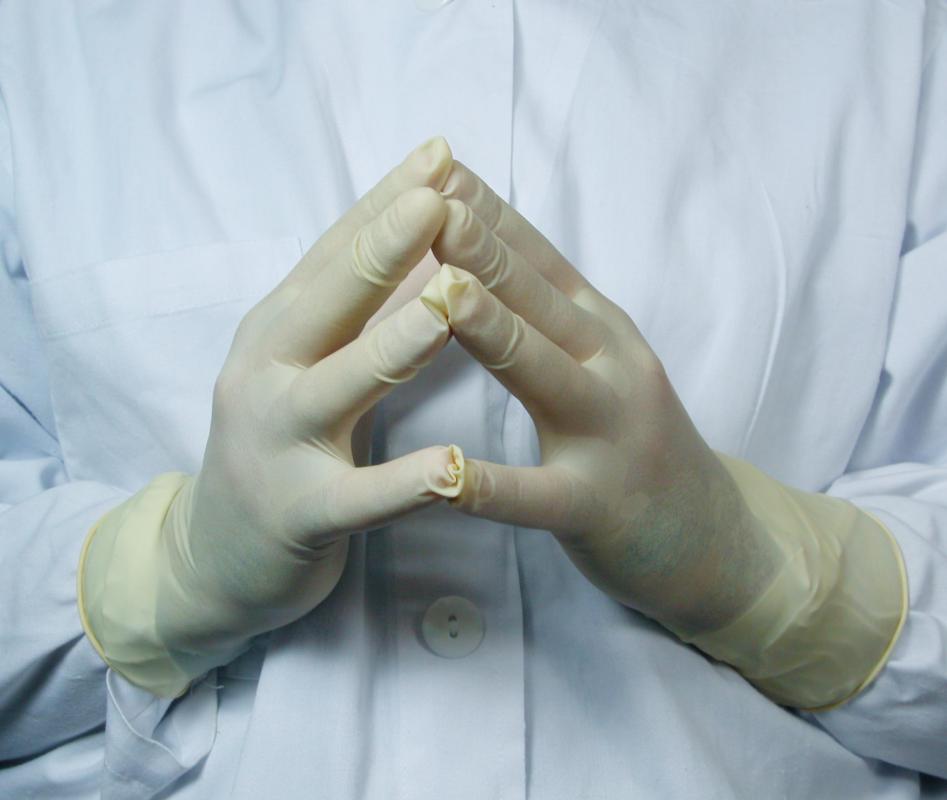At WiseGEEK, we're committed to delivering accurate, trustworthy information. Our expert-authored content is rigorously fact-checked and sourced from credible authorities. Discover how we uphold the highest standards in providing you with reliable knowledge.
What is Nosocomial Infection Control?
Nosocomial infection control is the process of trying to prevent and control the spread of infections acquired in a hospital or other healthcare facility. These infections are often referred to as nosocomial infections, hospital acquired infections, or healthcare acquired infections. There are several facets to the nosocomial infection control process. Some of the most vital include tracking the occurrence of infections, educating workers about the appropriate practices to prevent the spread of infection, and implementing those practices as needed.
Patients who acquire nosocomial infections frequently end up with longer hospital stays and unnecessary complications. An important part of nosocomial infection control is tracking the data about when and where infections occur. With this information, efforts at containing the spread and preventing future instances can be targeted to the areas where they are needed the most. Studies have also shown that when this type of data is made available to healthcare practitioners such as surgeons, both for themselves and facility wide, infection rates are reduced in all areas.

Another vital aspect of nosocomial infection control is educating the workers — both new and experienced employees — in the healthcare facility. Ongoing education to refresh previous knowledge and update it as needed is essential. This often takes the form of mandatory classes, also known as in-services, about infection control practices, or universal precautions, that are given at least annually. If an outbreak does occur, it's often useful to hold a brief refresher course at that time to reinforce the importance of implementing the appropriate infection control practices for containment purposes.

Once healthcare workers become informed about good nosocomial infection control practices, the next step is to implement them. Universal precautions should be followed with all patients, not just those known to have some type of transmittable infection. One of the best practices is hand hygiene; properly cleaning hands before and after any patient contact can be the most effective way to prevent the spread of infection. This can be accomplished with soap and water or with an alcohol-based sanitizing gel. Another is wearing gloves whenever any contact with bodily substances is likely to occur.

If there is a known case of infection, another effective nosocomial infection control practice is the use of contact precautions. Under this practice, healthcare workers are required to wear a gown and gloves during all patient contact and remove these items immediately when leaving the patient's room to prevent the spread of infection from contact with the patient or the patient's environment. Instruments such as stethoscopes or blood pressure cuffs are reserved for use with that patient only, kept in the patient's room, and the room is cleaned daily to help minimize the contamination of surfaces.
AS FEATURED ON:
AS FEATURED ON:














Discuss this Article
Post your comments